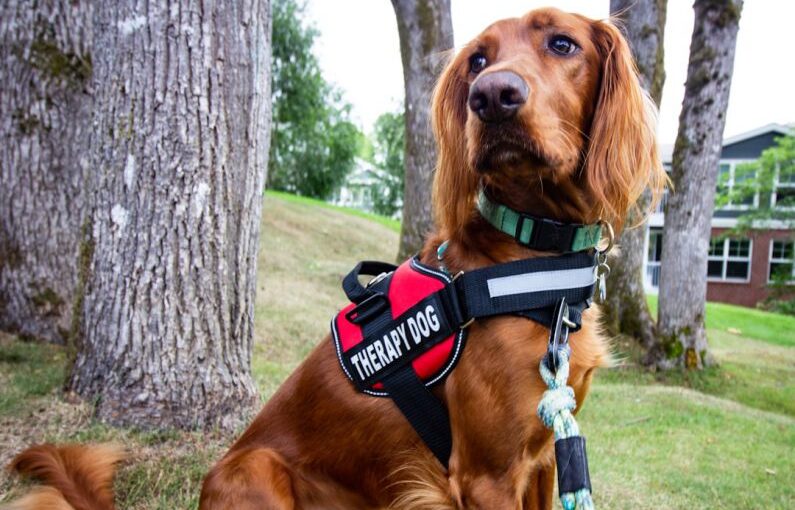**The Healing Power of Dogs: Therapy and Service Roles**
Dogs have long been recognized as man’s best friend, but their impact goes beyond mere companionship. These loyal animals have an innate ability to provide comfort and support in times of need, making them invaluable partners in therapy and service roles. From emotional support dogs to highly trained service animals, the healing power of dogs is undeniable.
**Therapy Dogs: Bringing Comfort and Joy**
Therapy dogs are specially trained to provide affection and comfort to individuals in hospitals, nursing homes, schools, and other settings. These dogs offer emotional support, reduce stress, and improve the overall well-being of those they interact with. Their gentle presence has been shown to lower blood pressure, decrease feelings of anxiety, and increase feelings of happiness and relaxation.
One of the key benefits of therapy dogs is their ability to create a sense of connection and companionship for people who may be feeling isolated or lonely. The non-judgmental and unconditional love that dogs offer can have a powerful impact on individuals struggling with mental health issues or facing difficult circumstances. Whether it’s a wagging tail, a gentle nuzzle, or simply a warm gaze, therapy dogs have a unique way of brightening even the darkest days.
**Service Dogs: Enhancing Independence and Quality of Life**
Service dogs play a crucial role in assisting individuals with physical disabilities, medical conditions, and other challenges. These highly trained animals are capable of performing a wide range of tasks to help their handlers navigate daily life with greater independence and confidence. From guiding the blind to alerting individuals with epilepsy to an impending seizure, service dogs provide invaluable support in countless ways.
The bond between a service dog and their handler is built on trust, communication, and mutual reliance. These dogs are not only skilled at carrying out specific tasks but also provide emotional support and companionship to their handlers. For many individuals, a service dog is more than just a helper – they are a lifeline, a constant source of comfort and reassurance in the face of adversity.
**The Impact of Dogs on Mental Health**
In recent years, there has been a growing recognition of the positive impact that dogs can have on mental health. Studies have shown that interactions with dogs can help reduce symptoms of depression and anxiety, improve mood, and enhance overall emotional well-being. The unconditional love and acceptance that dogs offer can provide a sense of security and stability for individuals struggling with mental health issues.
For individuals with post-traumatic stress disorder (PTSD), in particular, dogs have been shown to be effective in helping to manage symptoms and improve quality of life. Service dogs trained to support individuals with PTSD can provide emotional grounding, interrupt anxiety attacks, and offer a sense of safety and protection. The presence of a loyal and comforting companion can make a significant difference in the lives of those coping with the invisible wounds of trauma.
**In Conclusion: Dogs as Agents of Healing**
In conclusion, the healing power of dogs in therapy and service roles is a testament to the deep bond between humans and animals. Whether providing comfort to those in need, enhancing independence for individuals with disabilities, or supporting mental health and well-being, dogs play a vital role in our lives. Their unwavering loyalty, empathy, and ability to connect with us on a profound level make them not just pets, but true agents of healing and transformation. The next time you see a therapy dog at work or a service dog in action, take a moment to appreciate the incredible impact these remarkable animals have on the world around them.





